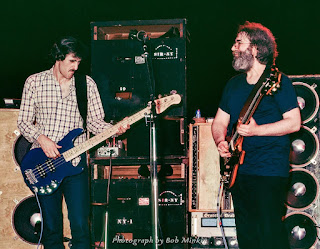Fourteen years ago on this day in 1998, Bob Dylan scooped up
his first Grammy for Album of the Year, and he immortalized a party crasher with the
words Soy Bomb painted in block letters on his bare chest. Just like so many
times before, this was a mind out of
time moment in Dylan folklore.
 Seven years before Soy Bomb, as American bombs rained down
on Iraq, Dylan bombed on the Grammy stage. Sure, “Masters of War” was a gutsy
song choice, but regardless of the spin that any Dylanologist puts on it,
Dylan’s 1991 performance was abrasive.
On that night, Jack Nicholson presented Dylan with a Lifetime
Achievement Award. Dylan’s improvised acceptance speech was a
hoot, but it was obvious he had seen better days.
Seven years before Soy Bomb, as American bombs rained down
on Iraq, Dylan bombed on the Grammy stage. Sure, “Masters of War” was a gutsy
song choice, but regardless of the spin that any Dylanologist puts on it,
Dylan’s 1991 performance was abrasive.
On that night, Jack Nicholson presented Dylan with a Lifetime
Achievement Award. Dylan’s improvised acceptance speech was a
hoot, but it was obvious he had seen better days.
After six more years of touring, and overcoming a freak
heart ailment, Dylan released Time Out of Mind to the thunderous roar of
writers, critics, and loyalists. Dylan was a shoe in to win at the 1998 Grammy
Awards. The only suspense was the live performance: what would Dylan play, and what
did the Grammy Gods have in store for him.
Dylan looked dashing in a gray suit as his band broke into
“Love Sick,” the tune I was pulling for. A funky crew of hired cool cats
circled the band as the Hibbing Hipster let it rip: “I’m walking, through
streets that are dead; I’m walking, with you in my head.” Dylan was in the
hypnotic zone. TV land was at his command until Soy Bomb burst upon the scene—a
half-naked man with his arms a-flailing.
Dylan noticed him from behind and shot him a look of absolute bewilderment.
It took security over a minute to remove the intruder, but
the bomb was lit. Dylan laced into the best guitar solo of his career. Dylan’s focused performance became sublime,
the adrenaline rush elevated the drama
for everybody. Dylan’s band was smiling in unison. Bob closed “Love Sick” with a poignant verse filled with attentive vocal inflections. By itself, the audio track
is a Dylan classic.
 With the Eyes of the World watching, this became one of the
most riveting moments in history of live entertainment. And we were yet to hear
that gripping acceptance speech where Dylan talked of how he was inspired by
Buddy Holly’s spirit during the recording
of Time Out of Mind because of
a vibe Dylan had picked up on when he saw Buddy in Duluth as a young man.
With the Eyes of the World watching, this became one of the
most riveting moments in history of live entertainment. And we were yet to hear
that gripping acceptance speech where Dylan talked of how he was inspired by
Buddy Holly’s spirit during the recording
of Time Out of Mind because of
a vibe Dylan had picked up on when he saw Buddy in Duluth as a young man.  Dylan keeps on keepin’ on.
If Soy Bomb hadn't existed, somebody would have had to an invent a Soy
Bomb Theory to explain Dylan's career
renaissance that is still raging fourteen years later.
Dylan keeps on keepin’ on.
If Soy Bomb hadn't existed, somebody would have had to an invent a Soy
Bomb Theory to explain Dylan's career
renaissance that is still raging fourteen years later.
Tangled Up in Tunes: Ballad of a Dylanhead
available at www.tangledupintunes.com

















